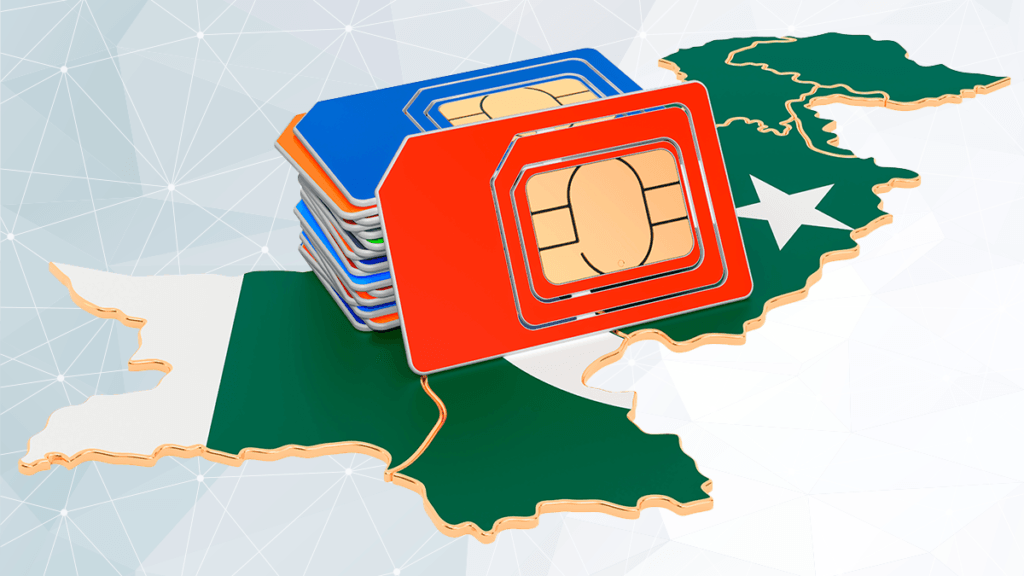
The Government of Pakistan and mobile industry leaders, GSMA, have launched a report which takes a close look at the transformative opportunities offered by mobile-enabled digital services in Pakistan. The meeting was held in partnership with the GSMA and Ministry of Information Technology and Telecommunication, with support from the Swedish International Development Cooperation Agency (Sida), UK Department for International Development (DFID) and United Nations Development Programme (UNDP). The members discussed how Pakistan could advance digital and economic inclusion through mobile.
Digital technology in Pakistan has become a critical tool to motivate social development and the country’s economic growth. In Pakistan, en masse digital transformation is underway with government institutions, private companies and development organisations beginning to take hold of digital platforms to increase the engagement and improve service delivery. With this in mind, the Government of Pakistan intends to transform the country into a knowledge-based economy while the planned National Digital Transformation Initiative, aims to inspire a more dependable and regular approach to the use of digital technologies to deliver and promote good governance.
“Mobile offers the most extensive and inclusive platform to access the internet and digital technologies, which are vital to the Pakistan economy and its growth in an increasingly connected world,” said Julian Gorman, Head of Asia Pacific, GSMA. “I am very excited about future potential and to see our member operators building on the good work already started through the Pakistan National Dialogue.”
During the event, H.E. Dr Khalid Maqbool Siddiqui, Minister of Information Technology and Telecommunication, launched the GSMA report titled, “The power of mobile to accelerate digital transformation in Pakistan.”
He stated that… “The government and the private sector and the wider ecosystem, must work together collaboratively to deliver the promise of a digital Pakistan. The mobile industry is an important partner to deliver transformational change in the digital era and ensure that we bridge the digital divide.”
The participants of the project all agreed that mobile technology provides a substantial opportunity to attain Pakistan’s plans for national development. They affirmed the need for the public and private sectors to work together, and to reach many different government agencies that wouldn’t usually consider mobile as a tool in development.
Report Findings
- Mobile broadband networks currently cover 80% of the population and 97% of internet connections are mobile.
- Pakistan has almost 700,000 cellular IoT connections across sectors including agriculture, clean energy and safe water solutions.
- Mobile technology is the main channel for digital financial services, digital birth registration initiatives, digital health solutions and digital learning.
- Mobile operators and the ecosystem also provided employment to around 320,000 people in Pakistan in 2018.
- The mobile ecosystem in Pakistan is responsible for the contribution of 5.4% ($16.7 billion) of the national GDP.
- The enablement of the digital ecosystem is largely supported by timely policy interventions for the facilitation and enablement of the industry and most importantly, the end-user.
Despite such progress, Pakistan still has much to accomplish to realize its true development potential as outlined in the country’s Digital Transformation initiative. The ever-increasing young population in the country is the catalyst for growing realization of the digital ecosystem, which is helping the country reach a parr with its neighbours in South Asia and other states in the Asia Pacific, on several key human development indicators which include education, health and gender equality. Meanwhile, fast population growth – nearly double the average for South Asian countries – could intensify the pressure on existing infrastructure and services, undermining efforts to enhance social development.
Three key points were recognized for stakeholders to be able to enhance the impact of mobile-enabled digital transformation on Pakistan’s development aspirations:
- Develop digital and financial inclusion: Like the economies of all developing countries, Pakistan’s demographic is still in a transitional phase and the use of mobile internet or access to formal financial services is progressing at a remarkable rate. However, if swift action is not taken to harness the advantages of digitalization, the country could be put at risk of missing out on the socioeconomic benefits of digital transformation. The gap in exclusion cuts across gender, geographic, economic and literacy lines. As an example, women are 37 % less likely than men to own a mobile phone. The government, industry, tech companies and development partners are collaborating to address the concerns related to connectivity, integration and modernization of telecommunication networks and services, hoping this will lead to digital transformation and financial inclusion in the country.
- A holistic approach to digitization: The divided use of digital services by government agencies and development organisations, often causes gross inefficiency in the use of resources. A one- government approach to the planning and integration of digital initiatives could increase the overall impact on society.
- Use mobile platforms for national development plans: Pakistan’s 12th Five-Year Development Plan runs from 2019 to 2024. There is a momentous opportunity to implement mobile, particularly on efforts to improve areas such as gender equality, health, and education and to reduce poverty.